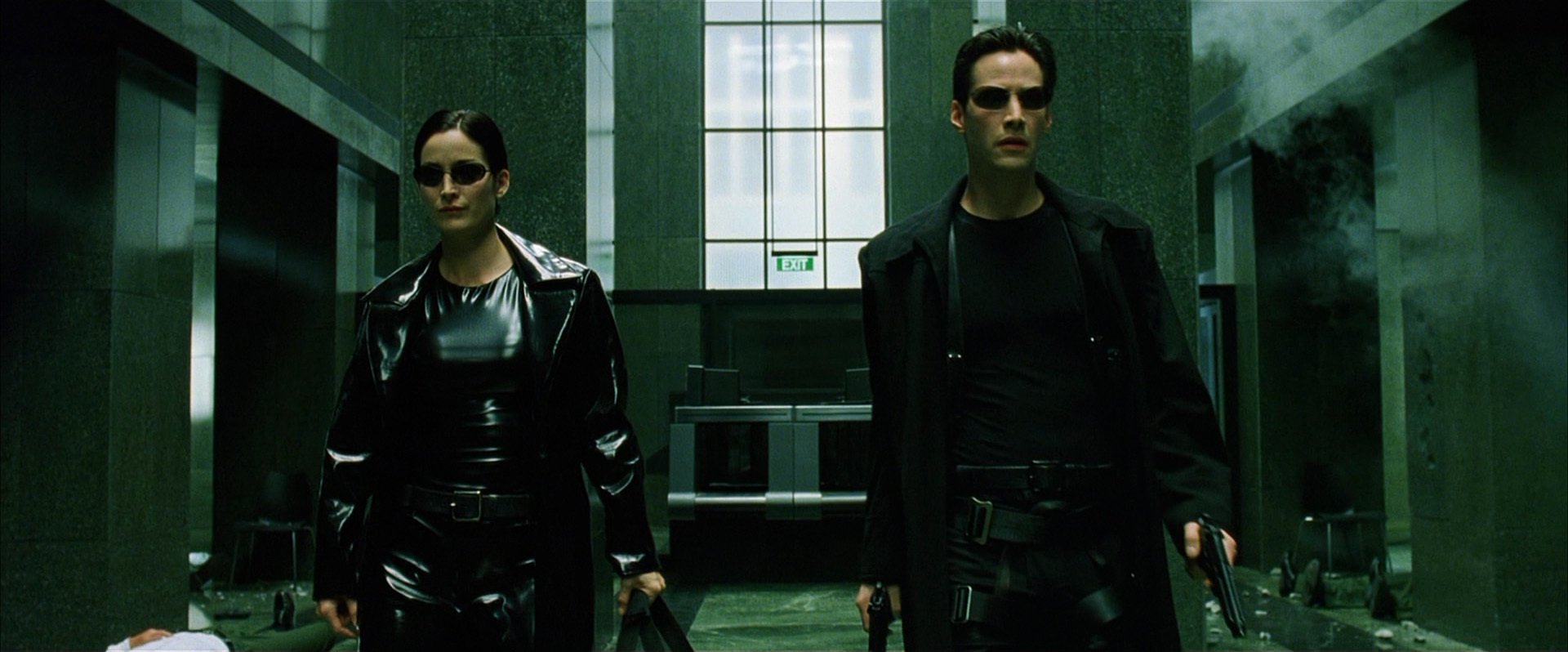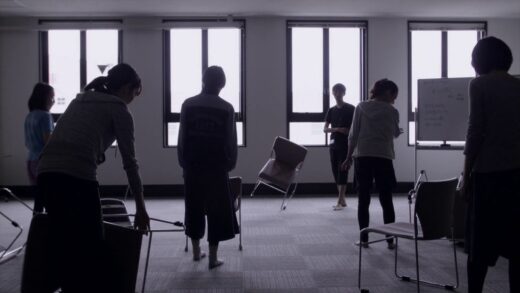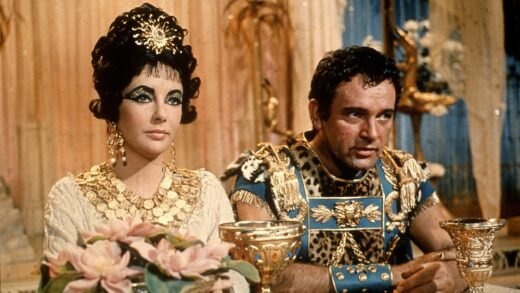Yet there is no absolution for having watched the entirety of the Matrix series … okay, not the most recent one. Still, 2 and 3, as incredibly mediocre as they are?!
Luckily, I also read much Henrik Ibsen, finally to understand why he is called the father of modern drama. And I finally saw David Lean’s Hobson’s Choice and William Wyler’s The Letter and …
In brief. The highnotes: The Letter (1940), Hobson’s Choice (1954), Stefan Zweig, Henrik Ibsen.
The lownotes: The Matrix (1999) and its progency, Ender’s Game (2013), 2010: The Year We Make Contact (1984), The Bounty Hunter (1965).
The others: Cynthia Ozick’s Foreign Bodies, Murder By Contract (1958), Stage Fright (1950)
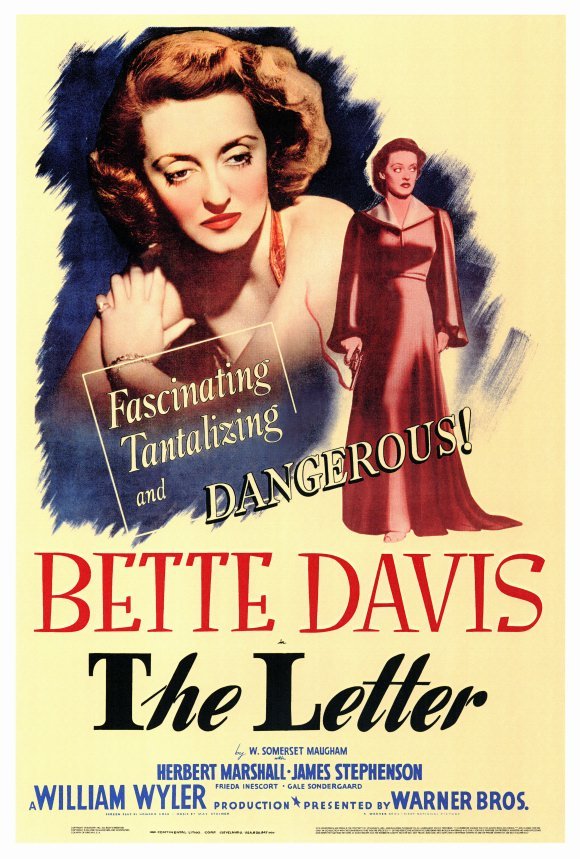
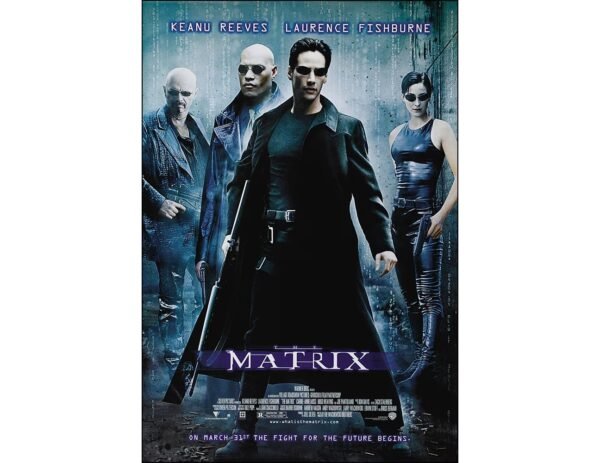
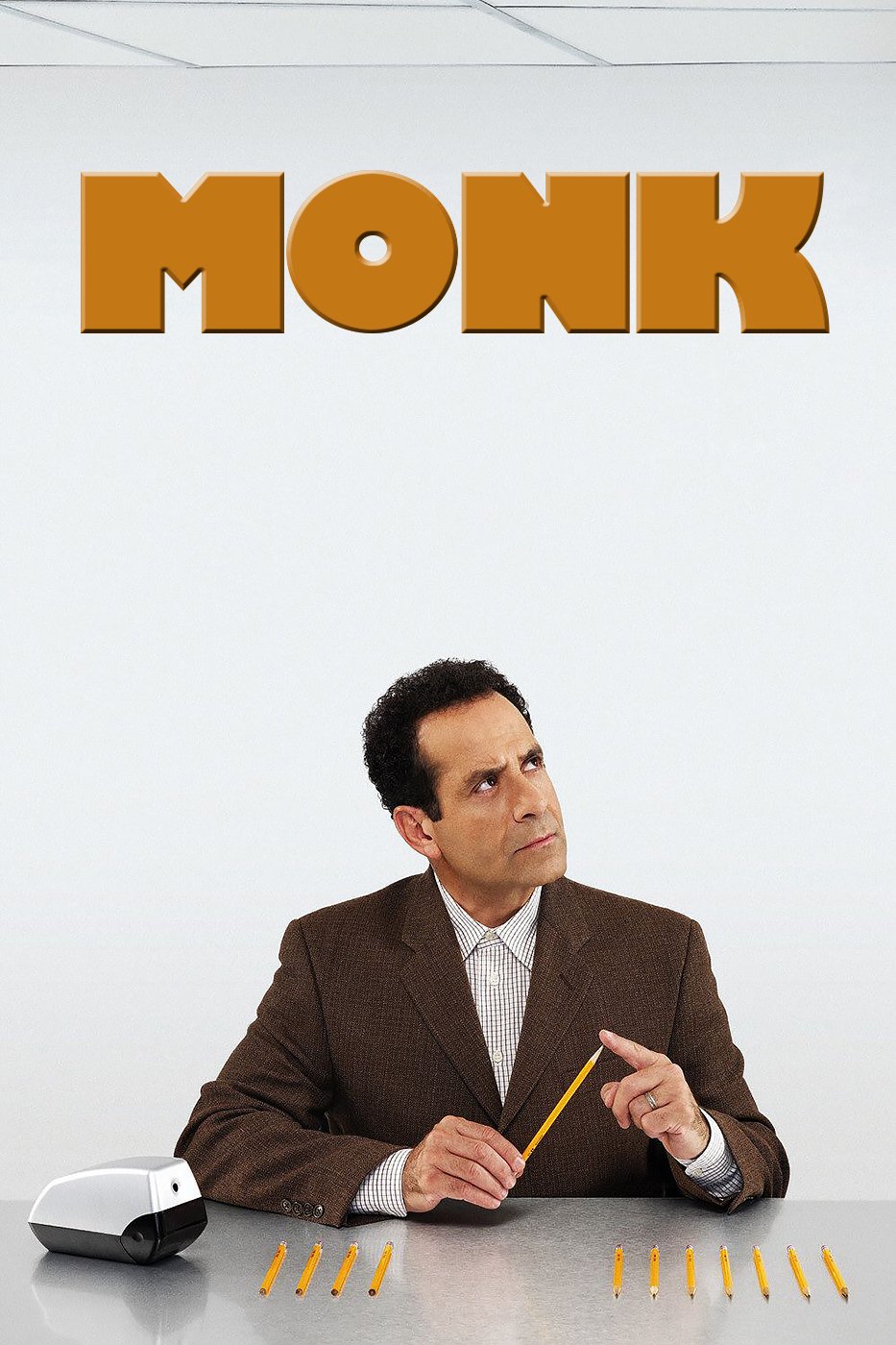
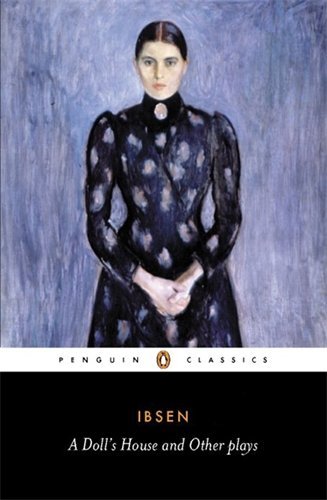
4/1
— Henrik Ibsen, Pillars of the Community, Act One
— Finished The Strange Career of Jim Crow
4/2
— Finished Pillars of the Community
— The Matrix (1999)
Directed and written by the Wachowskis; starring Keanu Reeves, Laurence Fishburne, Carrie-Anne Moss, Hugo Weaving, and Joe Pantoliano.
This film has aged quite poorly, as is visible from the below film stills. They are taken from one of the most exciting scenes, when Neo and Trinity are attacking the building where Morpheus is being held. They enter the building and start killing all of the security guards in an incredible shootout in which the worst gymnastics (in which legs do not bend) and gunplay are mixed.
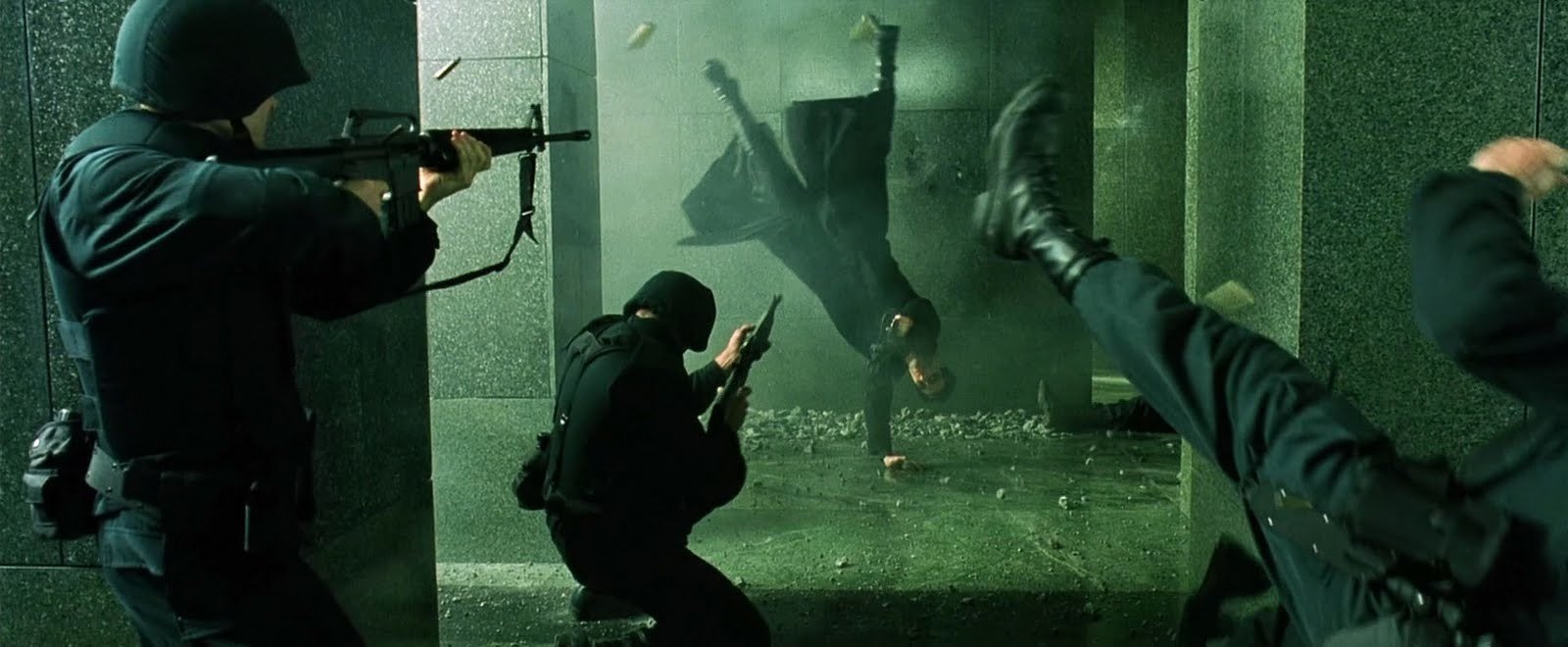
4/3
— Henrik Ibsen, A Doll’s House, Act One

4/4
— The Letter (1940)
Directed by William Wyler, and written by Howard E. Koch based on M. Somerset Maugham‘s play of the same name; starring Bette Davis, Herbert Marshall and James Stephenson.
Davis’ character is being gently questioned by investigators to determine what happened and their interviewer gives and incredible performance, almost acting out the event in from of them.
— Finished A Doll’s House
— The Rest is History, “Martin Luther”, Part 3
4/5
— Martin Luther, On the Freedom of a Christian, 20 pp.
Had started reading this some time ago. Within the context of the Rest is History podcast it’s of course quite salient.
The confusing part is that I believe most people take faith to be a sort of matter of will: do you choose to believe. This is part of the sense behind the question do you believe in God? But Luther has been trained well by the Augustinians and knows that grace is required.
So freedom is achieved through an act of faith but not realized unless grace is given.
— The Rest is History, “Martin Luther”, Part 3
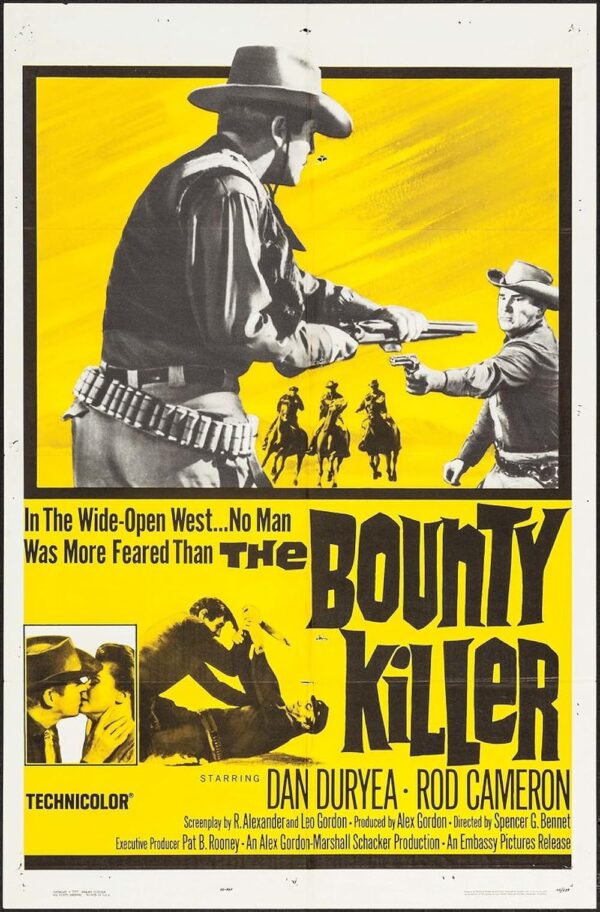
4/6
— The Rest is History, “Martin Luther”, Part 4
— The Bounty Killer (1965)
Directed and written by WGAF; starring Dan Duryea and his son, and others.
When Duryea was in this film he had three years to live, but he probably didn’t know it. This was no Anthony Mann-Jimmy Stewart collaboration.
Duryea starts as a sort of man of God horrified when he sees one man take the life of another. In other words, the diametrical opposite of the Waco Johnny Dean he plays in Winchester ’73 (1950). Honestly, he’s sort of ill-suited for this role. So that when he becomes a nihilistic bounty killer, resulting from seeing his friend killed by one of the men they’d tried to redeem, he’s lost his compass. But it never comes off. It’s just pastiche. He ain’t no Waco Johnny Dean.
One sort of interesting feature is that he creates a sawed off shotgun to dispatch his bounties.
— Ibsen, Ghosts, Act One
4/7
— “Gloom In Ukraine”, NYRB
— King Lear (1974)
Directed by Tony Davenall and written by a certain Shakespeare; starring Patrick Magee, Patrick Mower, Ann Lynn, Robert Coleby, and Wendy Allnutt.
After reading King Lear last month I’d meant to watch some stage productions of King Lear for the sake of seeing how these characters were interpreted by the performers. Magee’s Lear is mostly mad from the beginning—his explanation, as I understand it, for the bizarre imposition that he puts on his daughters, requiring them to confess to their love to receive inheritances.
But the actors performing the roles of Edmond and Edgar (Mower and Coleby) seemed strongest, in certain respects. Poor Tom/Edgar especially. Edmond’s recanting at the end didn’t come off as believably, I think.
— Finish Luther, On the Freedom of Christian
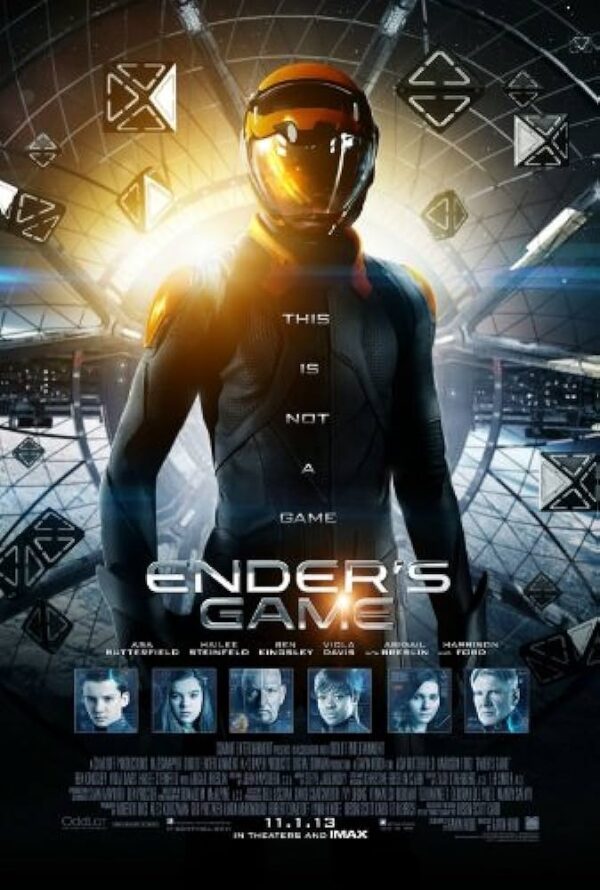
4/10
— Utopia of Rules, 20 pp.
— Ender’s Game (2013)
Directed and written by Gavin Hood, based on the novel by Orson Scott Card; starring Asa Butterfield, Harrison Ford, Hailee Steinfeld, Viola Davis, Abigail Breslin and Ben Kingsley.
During the Cold War when the novel was written, I had a bookshelf made from the top of a Welsh dresser, and on it I had the few books that I owned. One of which was this successor to this novel, Speaker for the Dead, given to me by a friend. I never read it but carried it along at least as far as Syracuse, New York. I think I would have enjoyed the book and its sequel, had I read it.
— Ghosts, 10 pp.
4/11
— Finished Ghosts, 15 pp.
Dying of syphilis! “The tradition of all dead generations weighs like a nightmare on the brains of the living”, Karl Marx wrote in The Eighteenth Brumaire of Louis Bonaparte.
4/12
— James Joyce, “Ibsen’s New Drama” and “Epilogue to Ibsen’s Ghosts”
4/14-16
— Ibsen, Enemy of the People
4/17
— Cynthia Ozick, Foreign Bodies, 30 pp.
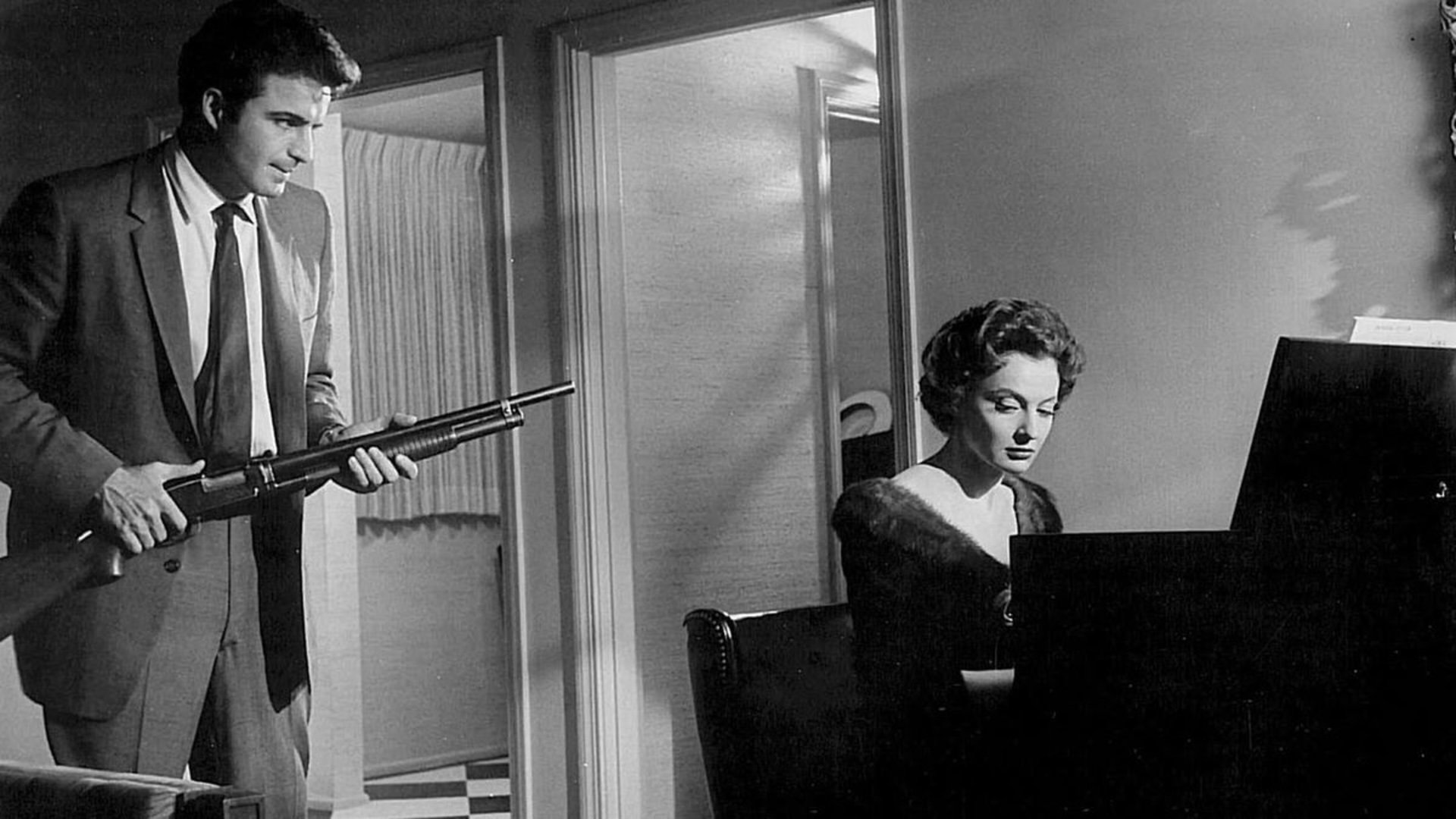
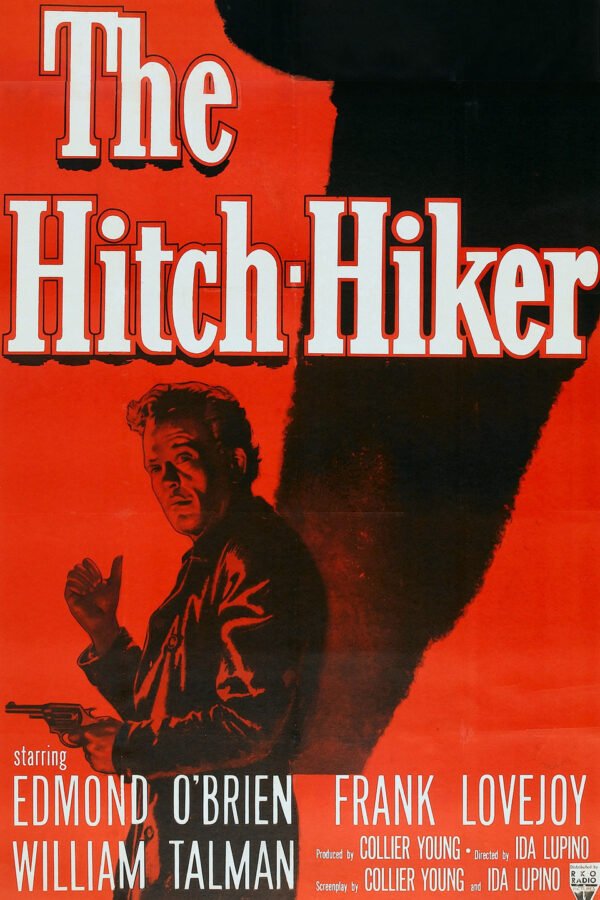
4/18
— Murder by Contract (1958), last hour
Directed by Irving Lerner; written by Ben Simcoe and Ben Maddow; starring Vince Edwards, Phillip Pine, and Herschel Bernardi.
This one is a real sleeper. Edwards’ character is the center—a contract killer mostly accompanied by two mafia handlers. Strange piano music accompaniment.
— The Hitch-Hiker (1953)
Directed by Ida Lupino; written by Lupino and Collier Young; starring Edmond O’Brien, William Talman and Frank Lovejoy.
Based on a true story, following a hitchhiker who has killed a number of his those who have graciously picked him up. Until he meets two buddies out for a fishing trip. Unlike the previous, he does not kill them and steal the car, but instead has them drive him to his destination. William Talman’s prosthetic eye is the real star of this movie.
— Foreign Bodies, 25 pp.
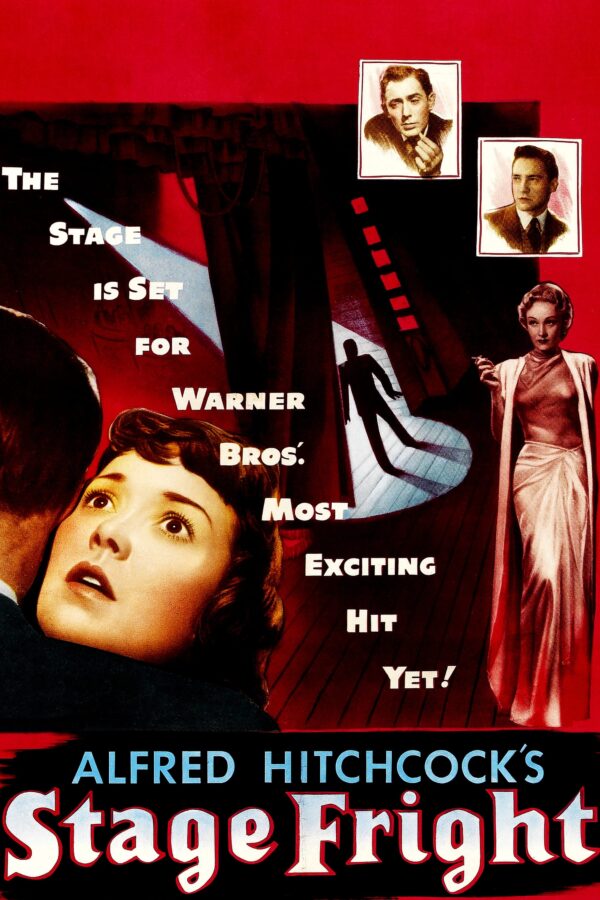
4/19
— Stage Fright (1950)
Directed and produced by Alfred Hitchcock, written by Whitfield Cook and Alma Reville from the 1947 novel Man Running by Selwyn Jepson; starring Jane Wyman, Marlene Dietrich, Michael Wilding and Richard Todd.
The ole bat and switch
— Foreign Bodies, 50 pp.
4/21
— Richard Powers, The Overstory, 35 pp.
4/22
— The Accountant (2016)
Directed by Gavin O’Connor, written by Bill Dubuque; starring Ben Affleck, Anna Kendrick, J. K. Simmons, Jon Bernthal, Cynthia Addai-Robinson, Jeffrey Tambor, and John Lithgow.
This film makes me think of the hilarious yet insightful line in Tropic Thunder (2008) when Robert Downey Jr.’s character, Kirk Lazarus, who is gone “full black,” advises against ever going “full retard.” He uses this moment of insight to criticize other actors, such as Sean Penn’s I Am Sam.
I think this is one of those relatively rare moments in film where characters reflect on film production its self, its ethos, its excess. Here Lazarus recognizes the dangerous territory that one enters when assuming the guise of a person with disabilities.
With Affleck’s eponymous character, one is speaking of a person that is neurodivergent, perhaps a more enlightened way of referring to a person with disabilities. Is the film taking advantage of neurodivergence to describe someone with unique abilities or to excuse their lack of an ethical code?
The Accountant wades through the blood of so many seemingly despicable men on its way to a conclusion.
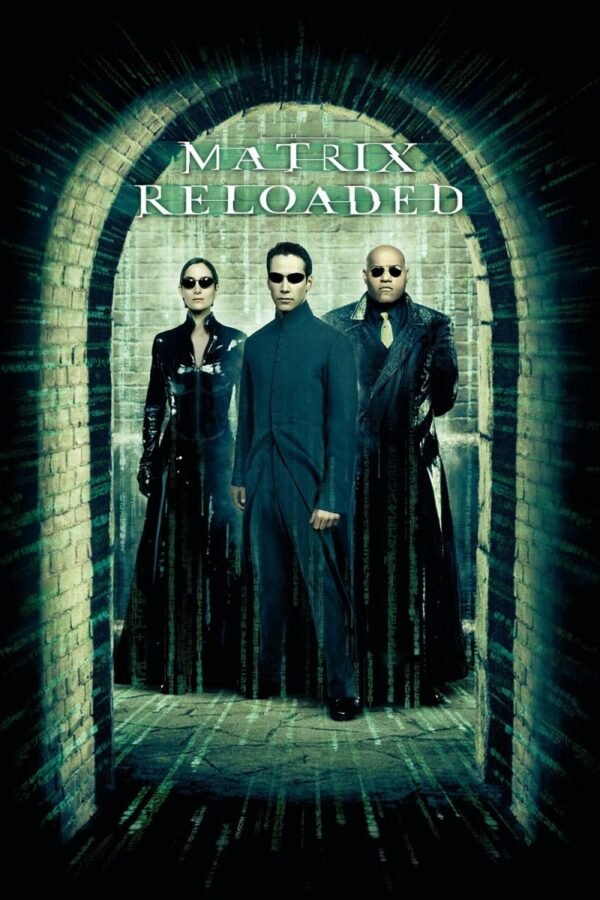
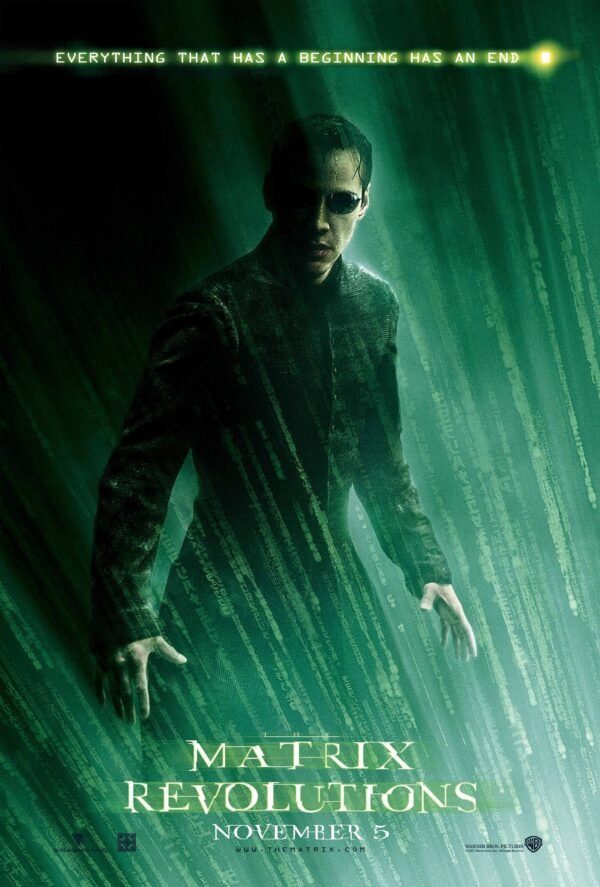
4/23
— The Matrix Reloaded (2003)
Directed and written by the Wachowskis; starring Keanu Reeves, Laurence Fishburne, Carrie-Anne Moss, Hugo Weaving, and Gloria Foster.
Wait, Neo and Trinity are supposed to be in love? Really?
— The Matrix Revolutions (2003)
Directed and written by the Wachowskis; starring Keanu Reeves, Laurence Fishburne, Carrie-Anne Moss, Hugo Weaving, Jada Pinkett Smith, Monica Bellucci, Lambert Wilson, and Mary Alice.
4/25
— The Overstory, 40 pp.
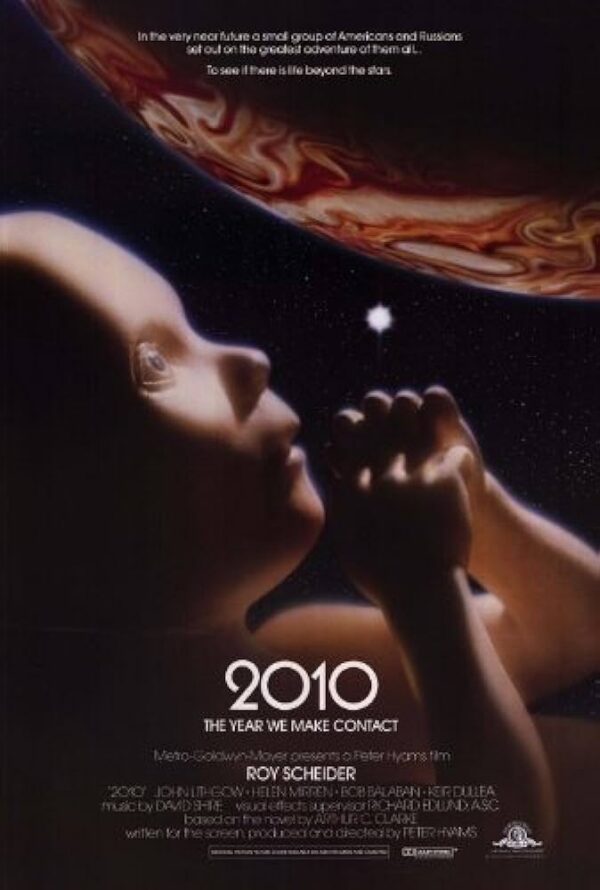
4/26
— 2010: The Year We Make Contact (1984)
Directed and written by Peter Hyams; stars Roy Scheider, Helen Mirren, Bob Balaban, John Lithgow, Keir Dullea, and Douglas Rain.
This film is the most forgettable sequel to Stanley Kubrick’s 1968 film 2001: A Space Odyssey. Like Ender’s Game, it’s caught within the Cold War and in particular the threat of nuclear war. Science fiction remains constrained by sociopolitical realities. Amazing discoveries on other planets bear intelligibility only insofar as they speak to the resolution of a geopolitical drama.

4/27
— Everything Everywhere All At Once (2023)
Directed and written by Daniel Kwan and Daniel Scheinert; starring Michelle Yeoh, Stephanie Hsu, Ke Huy Quan, Jamie Lee Curtis, and James Hong.
Owed it to myself to see this film, what with its having won seven Academy Awards. And it is charming and fascinating.
— Stefan Zweig, The Collected Stories of Stefan Zweig, “A Burning Secret”, 10 pp.
— NYRB on Central America and the US, Louisa May Alcott, technology and environmentalism
4/28
— Finished “Burning Secret”
— Overstory, 5 pp.
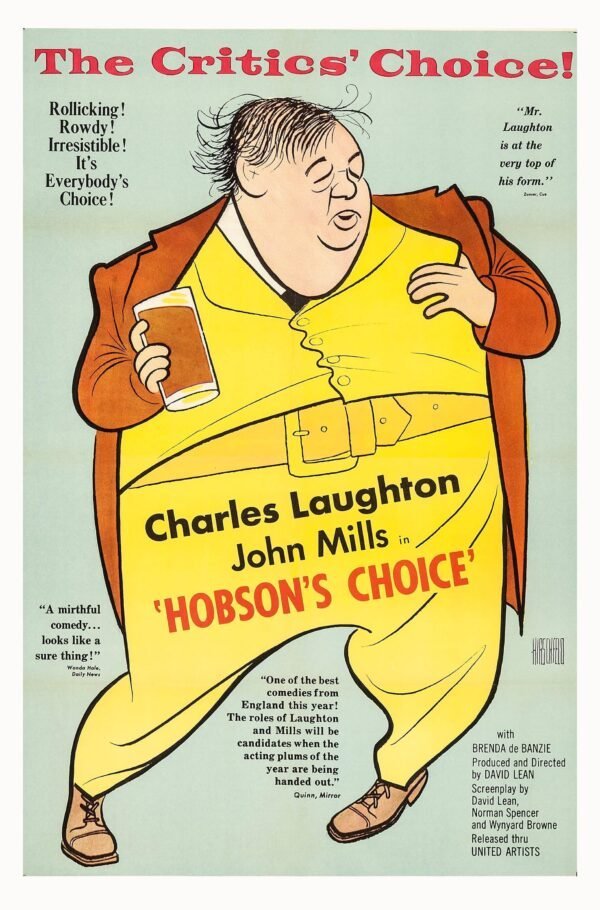
4/29
— Hobson’s Choice (1954)
Directed by David Lean, based on the play by Harold Brighouse; starring Charles Laughton, John Mills, and Brenda de Banzie.
The first film in the inadvertent David Lean film festival. Had been meaning to see this film for many years because it is a Charles Laughton film and I’ve been impressed with him since I saw Ruggles of Red Gap (1935) back when I spent a semester in France. But also when I’d seen Night of the Hunter (1955), about which I’ve written not too long ago, as well as Advice and Consent (1962), Jamaica Inn (1939), etc.
— Zweig, “A Chess Story”

